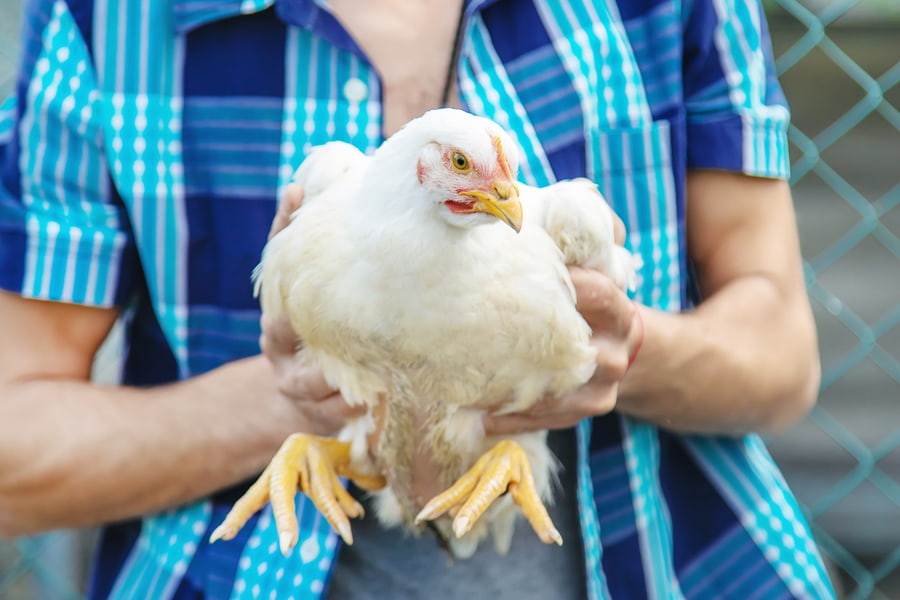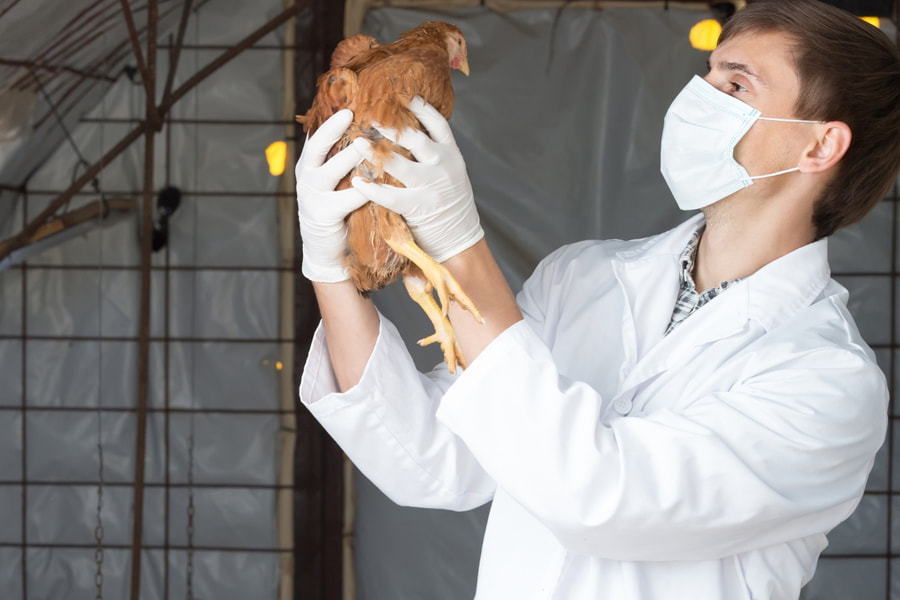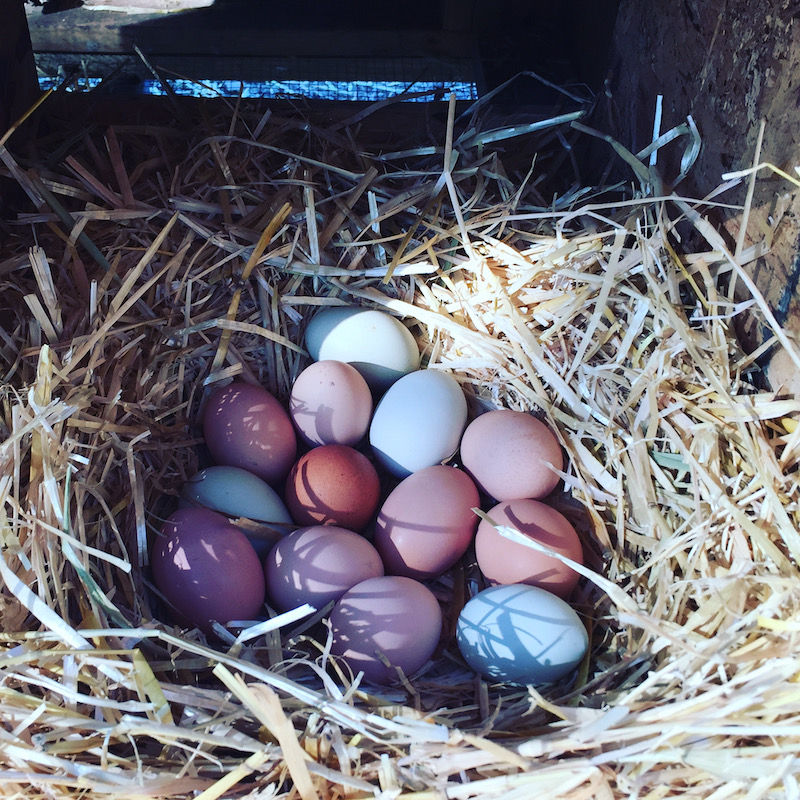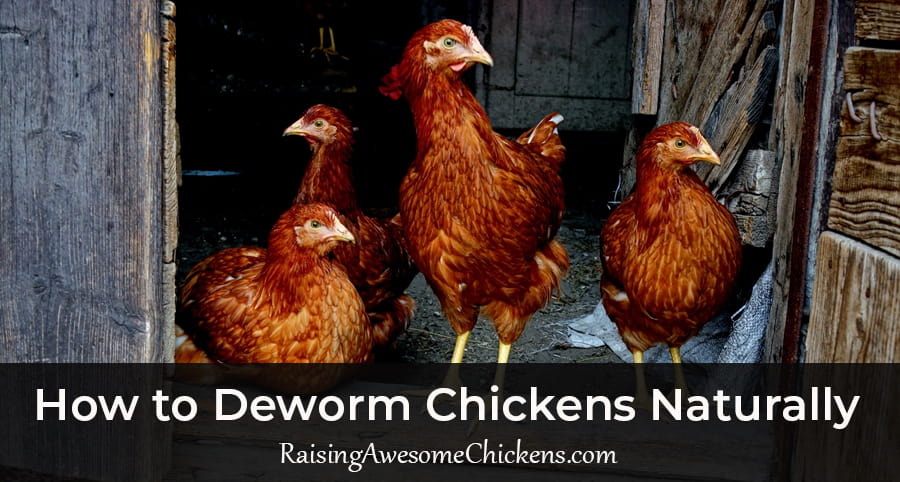Last Updated on February 19, 2024 by AwesomeChickens
There is an array of options when it comes to knowing how to worm chickens. You can choose a natural approach or turn to your vet for a prescription or suggestion. No matter what you do, it is important to act fast.
Table of Contents
What is Involved in Worming Chickens?
There are multiple routes chicken owners take when worming their birds. Most are pretty effective and simple to administer.
Natural Ways to Worm Chickens?

If you are not big on giving your chickens over-the-counter or veterinarian prescribed medications, you can try one or all of the natural items listed below. Each has components to help kill worms and protect your birds from getting them again.
Apple Cider Vinegar- When using apple cider vinegar as a de-worming agent, you will want to mix up one gallon of water with one tablespoon of apple cider vinegar and leave it out for your chickens to drink. Apple cider vinegar is a natural antiseptic, anti-biotic, and has high acidity making it perfect for cleansing your chicken’s digestive tract.
Diatomaceous Earth- Diatomaceous earth is a fine powder or dust that comes from a soft sedimentary rock. This product is sprinkled in your chicken’s feed or throughout their dusting area. It kills worms by literally drying them out -.
Garlic Cloves- Grinding up garlic cloves and putting them in your chicken’s feed is another great way to keep worms away. The garlic is a deterrent to worms and keeps them from entering your chicken’s digestive tract.
Pumpkin and Pumpkin Seeds- Pumpkin is one of the more popular chicken dewormer. It is because pumpkin acts as a laxative as well as a sedative to worms. The acid covering the pumpkin seed paralyzes the chicken worms while the pumpkin flushes them out.
Mint- Giving mint leaves to your chickens on a semi-regular basis is a great way to keep them free from an intestinal worm. Mint is said to destroy worm larva, stopping the re-growth of worms before new ones form.
When you are using natural deworming methods, you should treat your chickens for up to a week. As a preventative measure, you can add these ingredients to your chicken’s diet once a week.
Medications Used as a Dewormer for Chickens
If the above methods do not seem to work for you, or you prefer an actual medication, there are a few options for you.
These de-wormers are some of the highest-rated options available and are comprised of different ingredients proven to kill worms and keep them gone.
- Verm-X
- Merck Animal Health Mfg-Safeguard .5% Multi-Species Wormer
- Hilton Herbs Daily Hen Health Herbal Health Supplement for Poultry & Birds
When purchasing a worming medication, make sure you have correctly identified the type of worm your flock has to treat them.
How do You Know When to Worm Your Chickens?
Being a chicken owner can be a difficult task at times. However, riding your chickens of a worm infection does not have to be a complicated situation, nor does it have to be a scary issue.
However, not knowing or treating the worms can be deadly. Here are the signs and symptoms to look for if you believe your flock has parasites.
- Noticeable and rapid weight loss
- Pale wattles and pale combs
- Hens quit egg production
- Overly fluffed up
- Thread or strings in egg whites
- Lethargic
- Foamy or frothy poop
- Bloody diarrhea and blood in the chicken’s droppings
- Worms visible in the chicken’s droppings
If your birds are showing any of these symptoms, you should start administering treatment right away.
How to Test Your Chickens for Worms

A chicken owner may rely on their chicken vet to test their flock for worms. Most veterinarians do this by conducting a test that will check the worm egg count in your chicken’s feces. However, you can save yourself some money and a trip to the animal hospital by purchasing your kit.
These worm egg count kits are easy to use and can help determine whether your flock has an infestation. It is also helpful in determining if your method of de-worming is working.
You will know the de-wormer is effective when you check the bird droppings the worm egg count decreases. If the count is increasing, you know you need to try something different.
How to Prevent Your Chickens from Getting Worms
Aside from the list above, you can prevent your chickens from becoming infested with worms by keeping the barn clean. A dirty coop full of chicken poop will not only build up with harmful bacteria but will be the perfect breeding grounds for parasites.
Be sure to remove chicken poop and other waste from the coop daily and keep the ground dry and free from moisture and muck.
Another way to prevent your chickens from getting worms is by keeping them on a regulated and healthy diet. A poor diet can cause you to throw off your chicken’s dietary tract and cause a worm overload.
Finally, make sure to keep your chicken’s food and water containers clean. Parasites can quickly develop in contaminated water and old food.
What Happens if you Do Not Treat Chickens with Worms?
If you notice your chickens have worms and do not treat them, you can be setting yourself up for medical bills or a flock of dead birds. Worms can lead to many types of health issues in your chickens and eventually can lead to death.
The two major issues with chickens that are left with an un-treated worm infestation are dehydration and malnutrition. Both conditions are painful and life-threatening. They are also challenging to come back from once ill.
Can You Eat Eggs That Comes From a Chick That Has Worms?
Most of the time the egg is separated from chicken feces and digestive track including the Bowles. So, the majority of the time, it is safe to eat the eggs laid by a hen that has worms.
However, it is a good idea to check the egg thoroughly before devouring it. There is still a chance a highly infested bird could transfer the worms to the egg during the laying cycle.
Summing Things Up
Although it isn’t difficult to treat chickens with worms, it can lead to serious problems and death. It is much easier to prevent the infestation compared to correcting it, so keeping a clean coop, healthy diets, and happy chickens are the best options for all chickens owners.




